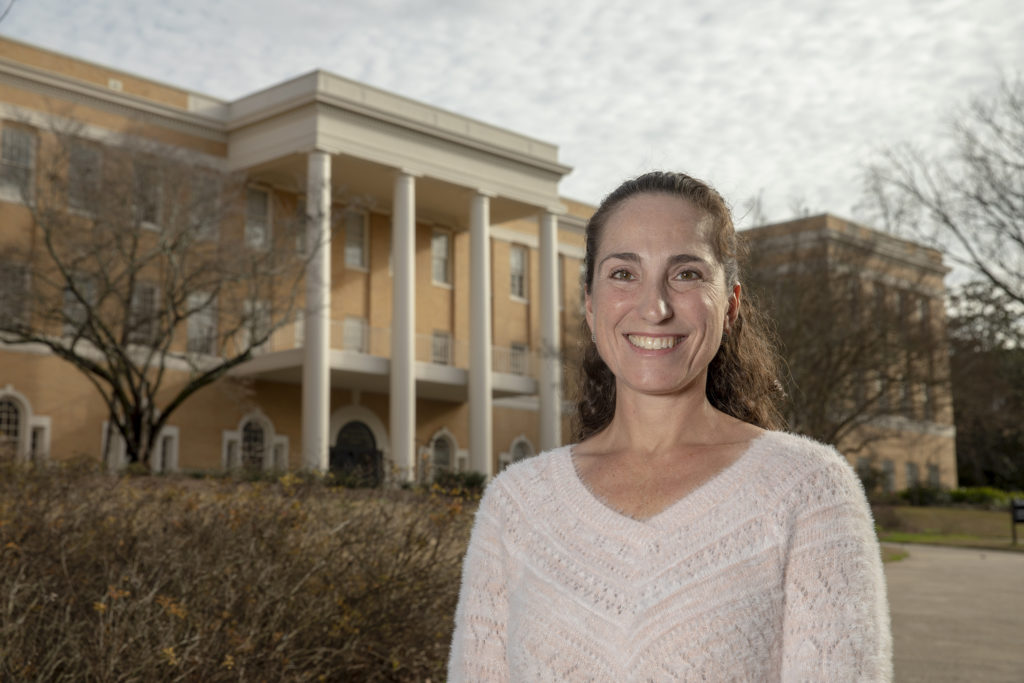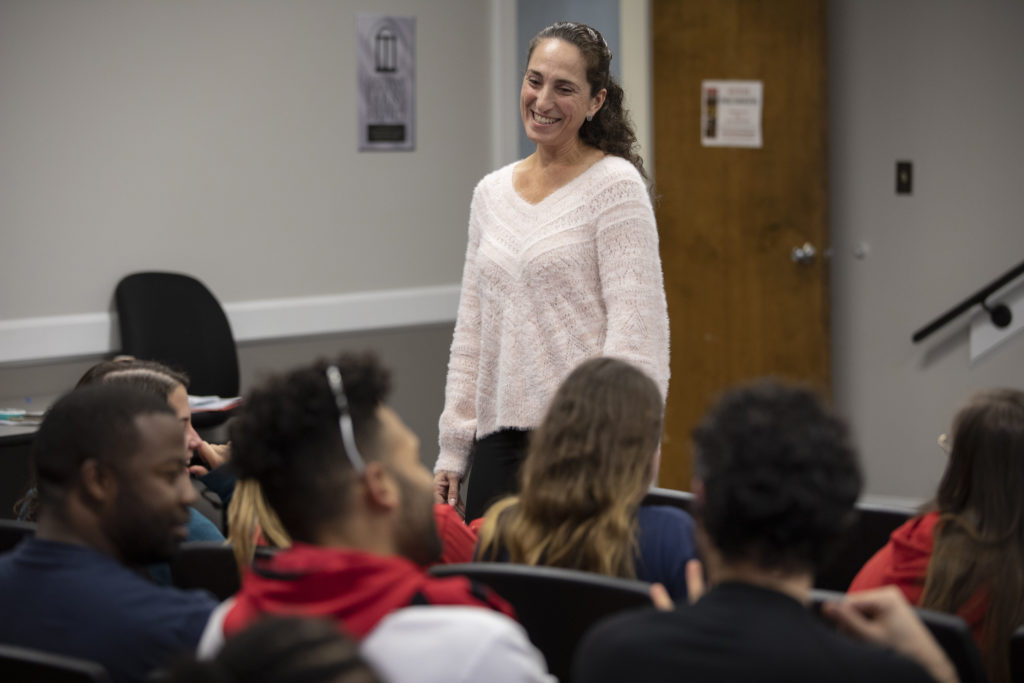Emma Laing, clinical associate professor and director of dietetics in the College of Family and Consumer Sciences, positions students for success in their professional and personal lives by giving them a research-based understanding of nutrition, diet and disease prevention.
When did you come to UGA and what brought you here?
I have been a member of the UGA community since 1997. As I was nearing the end of my dietetic internship at Emory University Hospital that prepared me to become a registered dietitian, I knew I was not yet finished pursuing higher education. Dr. Rick Lewis had an available master’s-level assistantship in UGA’s Sports Nutrition program and an opportunity to conduct research within his Bone and Body Composition Lab, and I couldn’t pass up the opportunity. UGA was the right place for me to hone my nutrition counseling skills while working with athletes and pursue my graduate education, and I have never looked back! Being a member of this lab for over 20 years as a graduate student (M.S. in 2000 and Ph.D. in 2003), postdoctoral researcher, and research scientist, I learned invaluable lessons from Dr. Lewis, particularly how to be an accessible and caring mentor to others. In my current role as clinical associate professor and director of UGA’s dietetics program, I am able to combine my nutrition science expertise with my interests in teaching and mentoring students. It’s the perfect fit.
What are your favorite courses and why?
I have taught an array of courses in the foods and nutrition department, including “Human Nutrition and Food,” “Nutrition in Exercise and Sport,” “Nutrition Related to the Human Lifecycle,” “Medical Nutrition Therapy,” “Management of Foodservice Organizations,” “Clinical Nutrition Interventions,” “Dietetics Practicum,” “Nutrition and Disease Processes” and “Professional Development in Foods and Nutrition.” It is impossible for me to choose a favorite—I truly love them all! The students make my courses so much fun. They are hilarious and clever, and each class has its own personality. I never know what type of “class personality” I will walk into at the start of a semester, but without fail, there are tears at the end of each one; I’m sure it’s what the director of a play feels like when a long-running production comes to an end. I am fortunate that many of my former students stay in touch with me, so I can keep up with their careers and opportunities they enter into next.
How do you describe the scope and impact of your research or scholarship to people outside of your field?
The field of nutrition is ever-changing. Half of what I learned in undergrad is different now. There are advances and discoveries in our field every day, and it is impossible to stay stagnant. There is so much attention on social media given to self-proclaimed food and wellness bloggers propagandizing readers to “eat healthy,” but a lot of these people have no nutrition background and can misinform and even harm the public. The students in the dietetics major are working toward becoming registered and licensed dietitians, which are THE experts in the field. It is my role to help them learn how to spot a pseudo-scientist, debunk ridiculous claims and speak up for the integrity of our profession. Students in my program learn to analyze the science behind fad diets, supplements, genetically modified organisms, vegetarianism and more. I also guide them through the exciting world of clinical nutrition, diet and disease prevention, and human resource management, which includes how to effectively lead a team. With every topic we cover in my courses, students leave class knowing where they can turn for credible information.
How does your research or scholarship inspire your teaching, and vice versa?
At UGA, I am involved in mentoring both undergraduate and graduate students as they prepare applications for dietetic internships and other supervised practice programs, develop research proposals, theses/dissertations, journal publications, and presentations for scientific meetings. I not only assist them with their degree requirements, but I also serve on their graduate committees. I am inspired if I can have a small role in helping others reach their leadership potential, whether this is through research or scholarship. I have observed that doses of success, large or small, can have a profound impact on future achievements. If I can assist students in determining what sets them apart from others, and offer them opportunities to articulate this, I believe they will be better positioned for success in their professional and personal lives.
What do you hope students gain from their classroom experience with you?
Teaching students at UGA is an absolute privilege. I hope they figure out early on that I take my responsibility as a teacher seriously, i.e., to help them succeed. I also acknowledge that each student learns differently. By working together, I help cater the material to their interests and figure out how they learn best. I also hope that students gain an appreciation for having a sense of humor from their classroom experiences with me. Life is often taken too seriously, so I try and add humor whenever possible in the classroom. All in all, I hope my students know that I care about their success during the semester and beyond, and that I love being a part of their journey.
The one UGA experience I will always remember will be…
So many moments at UGA have made me proud; however, when I received the Teacher of the Week recognition from the UGA Center for Teaching and Learning (which recognizes “innovative, dynamic, and explorative teachers implementing transformative pedagogies”), WOW—that one is hard to top. Since the nominations for that award came directly from my students, my heart was full, and it solidified for me that I am doing exactly what I am meant to do!

